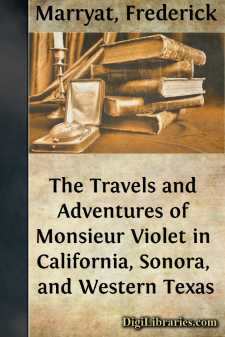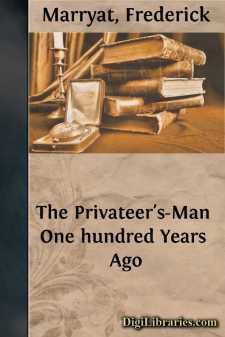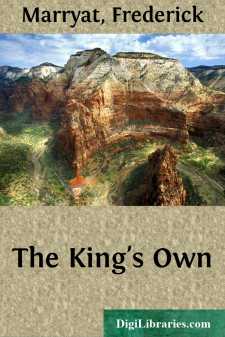Categories
- Antiques & Collectibles 13
- Architecture 36
- Art 48
- Bibles 22
- Biography & Autobiography 813
- Body, Mind & Spirit 142
- Business & Economics 28
- Children's Books 15
- Children's Fiction 12
- Computers 4
- Cooking 94
- Crafts & Hobbies 4
- Drama 346
- Education 46
- Family & Relationships 57
- Fiction 11829
- Games 19
- Gardening 17
- Health & Fitness 34
- History 1377
- House & Home 1
- Humor 147
- Juvenile Fiction 1873
- Juvenile Nonfiction 202
- Language Arts & Disciplines 88
- Law 16
- Literary Collections 686
- Literary Criticism 179
- Mathematics 13
- Medical 41
- Music 40
- Nature 179
- Non-Classifiable 1768
- Performing Arts 7
- Periodicals 1453
- Philosophy 64
- Photography 2
- Poetry 896
- Political Science 203
- Psychology 42
- Reference 154
- Religion 513
- Science 126
- Self-Help 84
- Social Science 81
- Sports & Recreation 34
- Study Aids 3
- Technology & Engineering 59
- Transportation 23
- Travel 463
- True Crime 29
The Travels and Adventures of Monsieur Violet in California, Sonora, and Western Texas
Categories:
Description:
Excerpt
CHAPTER I.
The Revolution of 1830, which deprived Charles the Tenth of the throne of France, like all other great and sudden changes, proved the ruin of many individuals, more especially of many ancient families who were attached to the Court, and who would not desert the exiled monarch in his adversity. Among the few who were permitted to share his fortunes was my father, a noble gentleman of Burgundy, who at a former period and during a former exile, had proved his unchangeable faith and attachment to the legitimate owners of the crown of France.
The ancient royal residence of Holyrood having been offered, as a retreat, to his unhappy master, my father bade an eternal adieu to his country; and with me, his only son, then but nine years of age, followed in the suite of the monarch, and established himself in Edinburgh.
Our residence in Scotland was not long. Charles the Tenth decided upon taking up his abode at Prague. My father went before him to make the necessary arrangements; and as soon as his master was established there, he sought by travel to forget his griefs. Young as I was, I was his companion. Italy, Sicily, Greece, Turkey, Egypt, and the Holy Land were all visited in the course of three years, after which time we returned to Italy; and being then twelve years old, I was placed for my education in the Propaganda at Rome.
For an exile who is ardently attached to his country there is no repose. Forbidden to return to his beloved France, there was no retreat which could make my father forget his griefs, and he continued as restless and as unhappy as ever.
Shortly after that I had been placed in the Propaganda, my father fell in with an old friend, a friend of his youth, whom he had not met with for years, once as gay and as happy as he had been, now equally suffering and equally restless. This friend was the Italian Prince Seravalle, who also had drank deep of the cup of bitterness. In his youth, feeling deeply the decadence, both moral and physical, of his country, he had attempted to strike a blow to restore it to its former splendour; he headed a conspiracy, expended a large portion of his wealth in pursuit of his object, was betrayed by his associates, and for many years was imprisoned by the authorities in the Castle of San Angelo.
How long his confinement lasted I know not, but it must have been a long while, as in after-times, when he would occasionally revert to his former life, all incidents he related were for years "when he was in his dungeon, or in the courtyard prison of the Capitol," where many of his ancestors had dictated laws to nations.
At last the Prince was restored to freedom, but captivity had made no alteration in his feelings or sentiments. His love for his country, and his desire for its regeneration, were as strong as ever, and he very soon placed himself at the head of the Carbonari, a sect which, years afterwards, was rendered illustrious by the constancy and sufferings of a Maroncelli, a Silvio Pellico, and many others.
The Prince was again detected and arrested, but he was not thrown into prison. The government had been much weakened and the well-known opinions and liberality of the Prince had rendered him so popular with the Trasteverini, or northern inhabitants of the Tiber, that policy forbade either his captivity or destruction. He was sentenced to be banished for (I think) ten years.
During his long banishment, the Prince Seravalle wandered over various portions of the globe, and at last found himself in Mexico. After a residence at Vera Cruz, he travelled into the interior, to examine the remains of the ancient cities of the Western World; and impelled by his thirst for knowledge and love of adventure, he at last arrived on the western coast of America, and passing through California, fell in with the Shoshones, or Snake Indians, occupying a large territory extending from the Pacific to nearly the feet of the Rocky Mountains. Pleased with the manners and customs and native nobility of this tribe of Indians, the Prince remained with them for a considerable time, and eventually decided that he would return once more to his country, now that his term of banishment had expired; not to resettle in an ungrateful land, but to collect his property and return to the Shoshones, to employ it for their benefit and advancement.
There was, perhaps, another feeling, even more powerful, which induced the Prince Seravalle to return to the Indians with whom he had lived so long. I refer to the charms and attraction which a wild life offers to the man of civilization, more particularly when he has discovered how hollow and heartless we become under refinement.
Not one Indian who has been brought up at school, and among the pleasures and luxuries of a great city, has ever wished to make his dwelling among the pale faces; while, on the contrary, many thousands of white men, from the highest to the lowest stations in civilization, have embraced the life of the savage, remaining with and dying among them, although they might have accumulated wealth, and returned to their own country.
This appears strange, but it is nevertheless true. Any intelligent traveller, who has remained a few weeks in the wigwams of well-disposed Indians, will acknowledge that the feeling was strong upon him even during so short a residence. What must it then be on those who have resided with the Indians for years?
It was shortly after the Prince's return to Italy to fulfil his benevolent intentions, that my father renewed his old friendship-a friendship of early years, so strong that their adverse politics could not weaken it. The Prince was then at Leghorn; he had purchased a vessel, loaded it with implements of agriculture and various branches of the domestic arts; he had procured some old pieces of artillery, a large quantity of carabines from Liége, gunpowder, &c.; materials for building a good house, and a few articles of ornament and luxury. His large estates were all sold to meet these extraordinary expenses. He had also engaged masons, smiths, and carpenters, and he was to be accompanied by some of his former tenants, who well understood the cultivation of the olive-tree and vine.
It was in the autumn of 1833 when he was nearly ready to start, that he fell in with my father, told him his adventures and his future plans, and asked him to accompany him. My father, who was tired and disgusted with everything, blasé au fond, met the Prince more than half-way.
Our property in France had all been disposed of at a great sacrifice at the time of the Revolution. All my father possessed was in money and jewels. He resolved to risk all, and to settle with the Prince in this far-distant land. Several additions were consequently made to the cargo and to the members composing the expedition.
Two priests had already engaged to act as missionaries. Anxious for my education, my father provided an extensive library, and paid a large sum to the Prior of a Dominican convent to permit the departure with us of another worthy man, who was well able to superintend my education. Two of the three religious men who had thus formed our expedition had been great travellers, and had already carried the standard of the cross east of the Ganges in the Thibetian and Burman empires.
In order to avoid any difficulties from the government, the Prince Seravalle had taken the precaution to clear the vessel out for Guatemala, and the people at Leghorn fully believed that such was his object. But Guatemala and Acapulco were left a long way south of us before we arrived at our destination.
At last everything was prepared. I was sent for from the Propaganda--the stock of wines, &c., were the last articles which were shipped, and the Esmeralda started on her tedious; and by no means certain voyage.
I was very young then--- not thirteen years old; but if I was young, I had travelled much, and had gained that knowledge which is to be obtained by the eye--perhaps the best education we can have in our earlier years. I shall pass over the monotony of the voyage of eternal sky and water. I have no recollection that we were in any imminent danger at any time, and the voyage might have been styled a prosperous one.
After five months we arrived off the coast, and with some difficulty we gained the entrance of a river falling into Trinity Bay, in lat. 41° north and long. 124° 28' west.
We anchored about four miles above the entrance, which was on the coast abreast of the Shoshones' territory, and resorted to by them on their annual fishing excursions. In memory of the event, the river was named by the Indians--"Nu elejé sha wako;" or, the Guide of the Strangers.
For many weeks it was a strange and busy scene. The Prince Seravalle had, during his former residence with the Shoshones, been admitted into their tribe as a warrior and a chief, and now the Indians flocked from the interior to welcome their pale-faced chief, who had not forgotten his red children. They helped our party to unload the vessel, provided us with game of all kinds, and under the directions of the carpenter, they soon built a large warehouse to protect our goods and implements from the effect of the weather.
As soon as our cargo was housed, the Prince and my father, accompanied by the chiefs and elders of the tribe, set off on an exploring party, to select a spot fit for the settlement. During their absence, I was entrusted to the care of one of the chief's squaws, and had three beautiful children for my play-mates. In three weeks the party returned; they had selected a spot upon the western banks of the Buona Ventura River, at the foot of a high circular mountain, where rocks covered with indurated lava and calcined sulphur, proved the existence of former volcanic eruptions. The river was lined with lofty timber; immense quarries of limestone were close at hand, and the minor streams gave us clay which produced bricks of an excellent quality.
The Spaniards had before visited this spot, and had given the mountain the name of St. Salvador; but our settlement took the Indian appellation of the Prince, which was--"Nanawa ashta jueri ê;" or, the Dwelling of the Great Warrior. As the place of our landing was a great resort of the Indians during the fishing season, it was also resolved that a square fort and store, with a boat-house, should be erected there; and for six or seven months all was bustle and activity, when an accident occurred which threw a damp upon our exertions.
Although the whole country abounds in cattle, and some other tribes, of which I shall hereafter make mention, do possess them in large herds, the Shoshones did not possess any. Indeed, so abundant was the game in this extensive territory, that they could well dispense with them; but as the Prince's ambition was to introduce agriculture and more domestic habits among the tribe, he considered it right that they should be introduced....












